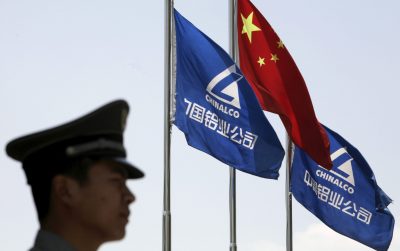Unlike the former socialist countries in Europe, SOE reform in China did not involve rapid and widespread privatisation. China’s reformers are aware of the significant economic, social and political consequences of the disruption caused by breaking up SOEs in a short time without creating the necessary conditions for change. China’s economic transition is a gradualist and experimental approach to reform, with SOE reform a typical example.
The primary goal of market-oriented reforms, as repeatedly reiterated by the Chinese government, is to build a socialist market economy with the state-owned sector as a leading sector. This thinking has had significant implications for the outcomes of previous SOE reforms, and will continue to influence the direction of future changes to the SOE sector.
SOE reforms have contributed to China’s economic development in two ways. Changes to SOEs have created the necessary conditions for the emergence and flourishing of private enterprises and enterprises with other ownership forms. This has also helped to enhance the efficiency and competitiveness of SOEs and led to substantial growth of their output. This in turn enables SOEs — and especially large SOEs — to maintain their substantial share in the economy.
Reforms have created a new generation of SOEs with diversified ownership types and a significant level of internationalisation. Now there are only a small number of SOEs that are purely state-owned, with the majority of enterprises now state-controlled shareholding corporations. While reforms have led to improvements in the productivity and financial performance of many SOEs, the overall performance of the SOE sector has declined and lagged behind private and other non-state enterprises over the past 10 years. The current reforms target the core issues of SOE operation and governance that include their function-based classification, ownership diversification, sectoral competition and entry barriers, autonomy and monitoring and corporate governance. The most recent radical reform measures address inherent problems in SOEs but their effects are yet to materialise and remain contingent on other market-oriented reforms.
It is time to reduce the number of lossmaking SOEs as their share in the state sector is still significantly higher than in the non-state sector. This is consistent with the government’s ongoing supply-side reforms to reduce excess capacity, deleverage and support industrial restructuring. Further ownership reform of SOEs in pillar and strategic industries is conducive to efficiency and productivity. State capital is being invested in private firms in new industries. This demonstrates the growing role of the private sector in SOE-dominated and monopolistic industries.
The definition of national interests was changed to include leading private firms in strategic and new industries. It is reasonable to allow more private enterprise participation in providing public goods such as infrastructure development and services as long as transparent government procurement frameworks are adopted to ensure fair competition and avoid corrupt practices. With the increasing participation of private enterprise, it is also essential to strengthen the enforcement of tax laws and regulations on key inputs, resources and services markets to regulate economic rents for the public interest.
Current reforms must be focussed more on the regulatory realm. Other market-supporting legal and regulatory changes should be reinforced in areas such as equal access to land and credit to reduce the soft budget constraint, ensure transparent procedures for government funding for R&D and strengthen financial market regulations.
Given the challenges of reforming corporate governance in the largest SOEs, implementing specific laws governing their operations and their relationships with government agencies are an option. This would help increase the transparency of their business activities in domestic as well as global markets. Caution needs to be exercised to avoid excessive party control, which could discourage the entry of private capital and interfere with enterprises’ commercial operations.
Chinese SOEs continue to play a significant role in several strategic industries that include new sources of energy, telecommunications and information technology, automation, transport equipment (such as automobiles, aviation, shipbuilding and high-speed railways), new materials, space technologies, construction materials and infrastructure development. The government has also called on SOEs to play a critical role in achieving the goals of the ‘Made in China 2025’ policy, which aims to build high-end manufacturing industries across all key industrial sectors.
In 2018, the Chinese government announced new measures for market opening in the forms of further tariff reduction and market entry. These reforms will accelerate the pace of SOE reform as the sector faces increased pressure from competition to make necessary adjustments. The success of SOE reform holds the key to deepening China’s supply-side reform, which, if successful, will raise the prospect of more robust growth in China during the next phase of its development.
Ligang Song is Professor and Director of China Economy Program at the Crawford School of Public Policy of the Australian National University.
This article is abridged from Ligang Song, ‘State-owned enterprise reform in China: Past, present and prospects’ in Ross Garnaut, Ligang Song and Cai Fang (eds.), 40 Years of Chinese Reform, China Update, ANU Press, 2018.

